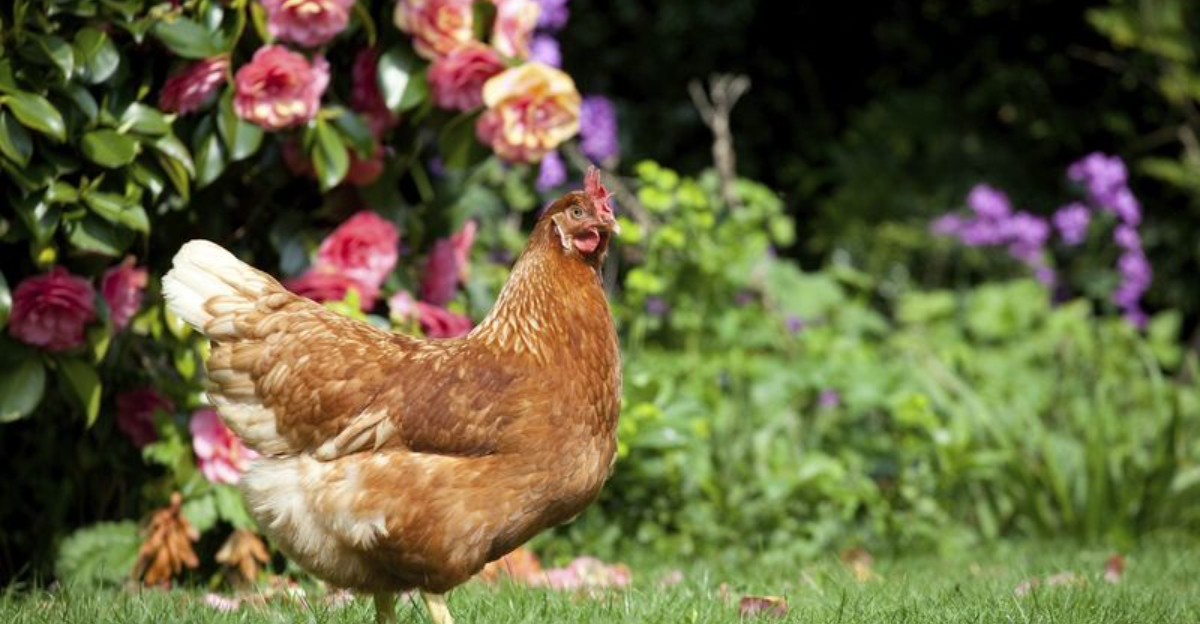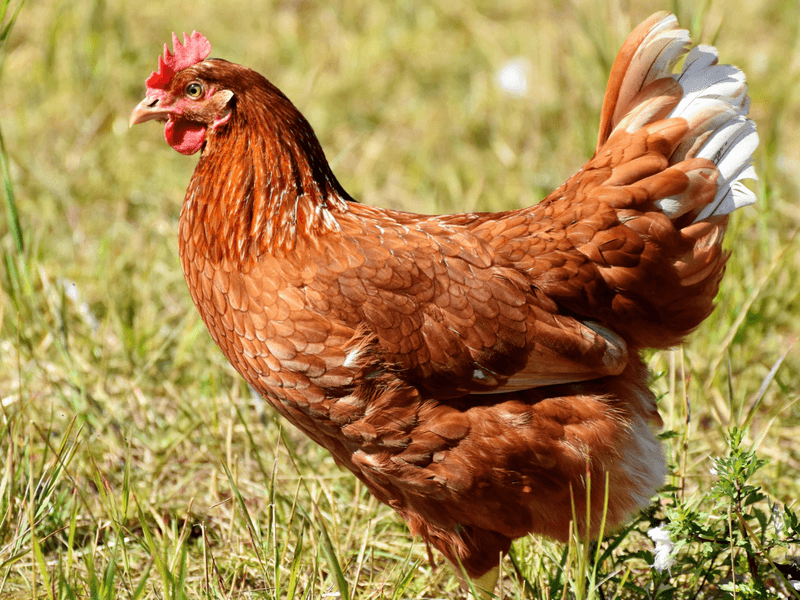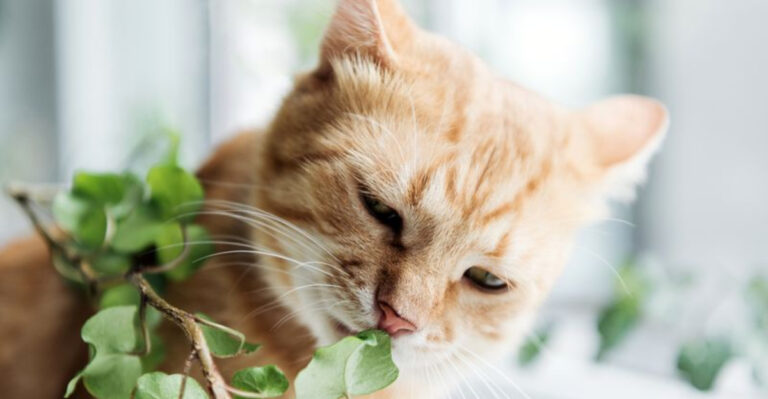15 Things You’re Doing That Your Backyard Chickens Absolutely Hate

Chickens may not speak our language, but their squawks and clucks tell us more than you might think. If your feathered friends are less than thrilled, there might be some common mistakes you’re making that ruffle their feathers.
Let’s explore what you’re doing that could make them cluck their discontent.
1. Too Much Handling

Chickens are like introverts at a party when it comes to handling. Sure, they tolerate it occasionally, but too much can make them ruffle their feathers in protest. Imagine someone constantly in your personal space; that’s how your chickens feel.
Unwanted handling can lead to stress and anxiety in your feathered friends. A brief cuddle or stroke is fine, but moderation is key. Respect their need for personal space, and you’ll notice happier clucks around the coop. Instead of constant handling, observe their behaviors from a distance.
This will help you understand their needs without causing unnecessary stress. A hands-off approach may be just what your chickens ordered to keep the peace in the coop.
2. Ignoring Their Dust Bath Needs

Ever notice chickens rolling in the dirt? It’s not because they’re messy; it’s a vital part of their grooming routine. Dust baths help chickens keep parasites at bay and maintain healthy feathers. When you ignore their dust bath needs, it’s like denying someone their shower time!
Providing a designated dust bath area filled with fine sand or dirt can bring a world of difference to their daily routine. It’s an easy fix that keeps them sprightly and content. So, next time you clean the coop, remember to leave a little dirt behind. Your chickens will thank you with extra peppy clucks, showing their appreciation for your thoughtful consideration of their basic needs.
3. Improper Diet

Feeding your chickens like they’re at a fast-food joint isn’t just unkind; it’s unhealthy. Chickens need a balanced diet to thrive, not the scraps from last night’s dinner. Improper feeding can lead to nutritional deficiencies and even impact egg production.
Stick to a diet that includes high-quality feed tailored for their age and laying stage, with occasional treats like fruits and vegetables.
This keeps them healthy and energetic. When you ensure they’re getting the right nutrients, you’ll notice a difference in their vitality and egg quality. Remember, happy chickens lay the best eggs, and a suitable diet is a stepping stone to achieving that.
4. Overcrowding In The Coop

Chickens need their space just like we do. Overcrowding in the coop can lead to stress, pecking, and health issues. Imagine living in a cramped apartment with no room to stretch out; it’s not ideal for anyone. Allowing sufficient space for each bird is crucial for their well-being. A general rule is to provide at least 2-3 square feet per chicken inside the coop and 8-10 square feet in the run.
Providing ample room helps reduce aggression and encourages natural behaviors. You’ll find your flock more relaxed, and their clucking will be harmonious rather than a cacophony of complaints. Space truly is the final frontier for happy chickens.
5. Neglecting Coop Cleanliness

A clean coop is a happy coop. Neglecting cleanliness not only leads to unpleasant odors but also paves the way for pests and diseases. Chickens are tidy creatures at heart, and they thrive in a hygienic environment. Regular cleaning of the coop, changing bedding, and ensuring proper ventilation keeps the nasties away and the chickens chirpy.
This simple routine can significantly enhance your chickens’ quality of life. Think of it as spring cleaning for their abode; a spick-and-span coop is a surefire way to show your chickens you care. Keep those ruffled feathers at bay and maintain a fresh environment for your precious flock.
6. Neglecting Predator Proofing

Predators are the bane of any chicken keeper’s existence. Failing to predator-proof your coop is like leaving the door open for trouble. Chickens, although resilient, are vulnerable to attacks from cunning foxes, raccoons, and other predators.
Secure your coop with sturdy materials, ensuring no gaps or weak points where predators could slip through. Installing locks and using predator-proof fencing further safeguards your flock. A fortified coop not only protects your chickens but also grants you peace of mind. Knowing your feathered friends are safe from harm allows them to thrive, clucking contentedly without fear of lurking dangers.
7. Boredom And Lack Of Stimulation

Just like humans, chickens need entertainment to prevent boredom. A lack of stimulation can lead to undesirable behaviors, such as feather pecking or excessive squawking. It’s like being stuck in an empty room with nothing to do day after day. Introduce toys, perches, and grain scatterings to encourage natural foraging behaviors.
These activities keep their minds sharp and bodies active. When chickens are mentally and physically engaged, they’re less likely to engage in negative behaviors. A lively, enriched environment keeps your flock happy, reducing stress and promoting harmony amongst the hens.
8. Inconsistent Feeding Times

Chickens appreciate routine, and inconsistent feeding times can throw them off balance. Imagine expecting dinner at 6 PM and having no idea when it’ll actually arrive. It’s frustrating! Establish a regular feeding schedule and stick to it.
This consistency helps maintain their natural rhythms and supports healthy digestion. With predictable feeding times, chickens become less anxious and more satisfied. A happy chicken is one that knows when its next meal is coming without the guesswork. Keeping their meals on time keeps their clucking content.
9. Insufficient Ventilation

Breathable air is vital for chickens, and a stifling coop can lead to respiratory issues. Imagine being stuck in a stuffy room with no airflow; it’s not pleasant. Proper ventilation ensures fresh air circulation, reducing ammonia build-up from droppings.
Installing vents or windows that allow for cross-ventilation is essential. This keeps the air fresh and the chickens healthy. A well-ventilated coop is not only beneficial for the chickens’ health but also improves their overall comfort. Fresh air is a necessity for any living creature, and chickens are no exception.
10. Lack Of Fresh Water

Water is life, even for chickens. Neglecting to provide fresh water daily is a recipe for discontent. It’s like being parched on a hot day with no relief in sight. Chickens need constant access to clean water to stay hydrated and healthy.
Ensure their water containers are filled and cleaned regularly to prevent bacteria build-up. This simple act goes a long way in maintaining their overall well-being. Remember, happy chickens are hydrated chickens. Keeping their water bowls full and fresh is essential for their happiness and health.
11. Disregarding Seasonal Needs

Each season brings new challenges, and chickens need extra care during temperature extremes. Ignoring their seasonal needs is like wearing a swimsuit in a snowstorm—a recipe for disaster. In winter, provide extra bedding for warmth, and in summer, ensure shade and cool water to prevent overheating.
Adjusting care based on weather conditions helps maintain their comfort. By acknowledging and catering to seasonal changes, you ensure your chickens remain comfortable and content, whatever the weather may bring. Seasonally adaptable care is key to a happy flock.
12. Loud Noises And Disturbances

Chickens are sensitive to loud noises and disturbances. Sudden, unexpected sounds can cause panic, leading to injury and stress. It’s like waking up to a blaring alarm clock; no one likes that! Keeping the coop in a quiet area, away from constant disruptions, helps minimize stress levels.
When peace reigns, chickens are more relaxed and productive. While some noises are unavoidable, minimizing unnecessary disturbances is crucial. A tranquil environment is a chicken’s haven, ensuring they remain calm and collected.
13. Inadequate Nesting Areas

Chickens are particular about where they lay their eggs. Providing inadequate nesting areas can lead to frustration and even egg-laying issues. Picture a long line for a single bathroom stall; it’s not ideal.
Ensure ample nesting boxes, one for every three to four hens, to prevent squabbles and encourage regular egg-laying.
Comfortable, clean bedding in each box also enhances their egg-laying experience. When your hens have access to adequate nesting areas, they’re more likely to lay eggs consistently and without stress. Happy hens mean a steady supply of farm-fresh eggs.
14. Ignoring Their Molting Cycle

Molting is a natural process but can be stressful for chickens. Ignoring their needs during this cycle is like dismissing someone’s bad hair day—it’s inconsiderate. Chickens shed old feathers and grow new ones, requiring extra protein in their diet for support.
Offering a higher protein feed or treats like mealworms aids in feather regrowth and energy replenishment. Acknowledging their molting needs ensures they regain their feathered splendor quickly. Support during this time is crucial for their comfort and confidence, helping them strut their stuff once more.
15. Neglecting Social Dynamics

Chickens are social creatures that thrive in a harmonious flock. Neglecting their social dynamics can lead to bullying and isolation. It’s like not getting an invite to a party—no fun at all. Observe the pecking order and intervene if necessary to prevent aggressive behaviors. Introducing a new member?
Do so gradually to ensure acceptance. Maintaining a balanced social environment keeps the pecking order peaceful, ensuring all chickens coexist happily. Understanding their social needs fosters a cooperative and contented flock.






